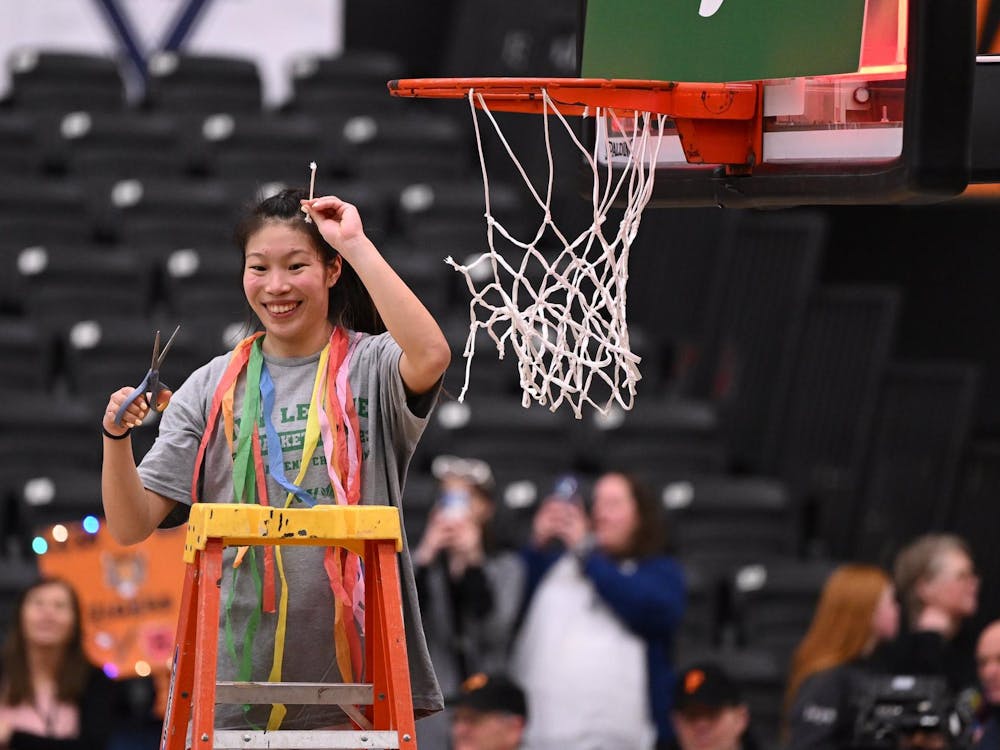Seeing a need to show students that the technology sector extends beyond American borders, first-year students Ron Miasnik ’22 and Daniella Cohen ’22 organized a new TigerTrek trip to Israel.
Fifteen students will go on the Israel TigerTrek trip over Intersession 2020, which is a partnership between Miasnik, Cohen, the Keller Center for Innovation in Engineering Education, and the Center for Jewish Life (CJL).
The TigerTrek program operates through the Entrepreneurship Club (e-Club) and originated in 2012 as a week-long trip to Silicon Valley. A second TigerTrek in New York City was added in 2017.
“[Participants] meet with founders of start-ups and tech executives as well as venture capitalists to understand the startup ecosystems in both of those cities,” Cohen said.
Israel has gained a reputation as a startup nation due to its largely influential technology industry. Many large companies, including Wix, Waze, and Mobileye, are located in Israel.
“We’re living in an increasingly globalized world. It’s no longer reasonable or okay to just think about the US when you’re thinking about any issue, whether it be technological, political, anything,” Miasnik said.
“Israel has the most start-ups and the most venture capitalist funding per capita of any country in the world, and it has the third most companies listed on NASDAQ of any country after the US and China,” Miasnik added. “That’s pretty unbelievable for a country of just about eight million people.”
According to Cornelia Huellstrunk, Executive Director of the Keller Center, the TigerTrek program aims to impact both the participants and the University as a whole.
“One of the goals is to make sure that a variety of students have the opportunity, and that the students that go are also the ones who are really eager to share their learning with the campus,” she explained.
Miasnik first came up with the idea for a TigerTrek to Israel in the beginning of the school year. Cohen had met Miasnik through a mutual friend before beginning at the University, and they quickly became friends on campus.
“Ron and I have complimentary experiences and skill sets—we make the perfect team," Cohen wrote in an email to the ‘Prince.’ "When Ron told me about his idea, to bring a TigerTrek to Israel, I was on board immediately. Israel has a unique start-up ecosystem that Princeton students can learn from, and I am thrilled to be a part of that journey.”
Miasnik and Cohen reached out to multiple on-campus institutions in order to make their TigerTrek a University-wide endeavor.

“We really wanted to make this a partnership across the University,” Miasnik said. “Both the CJL and the Keller Center are partnering with us and supporting us in the initiative.”
The Keller Center has first-hand experience with the technology sector in Israel due to a Princeton Startup Immersion Program (PSIP) in Israel. This program gives students a ten-week internship with various startup companies in Tel Aviv.
“When we created the Princeton Startup Immersion Program a couple years ago, the whole point of the program was to introduce students to a broader way of thinking about entrepreneurship and to realize that entrepreneurship is a human behavior that is really widespread and not just limited to Silicon Valley,” Huellstrunk said.
“It’s amazing to see the entrepreneurial activity there. It’s very different from the way entrepreneurship works in the United States, and that’s exactly what we want to expose students to,” she continued.
Rabbi Julie Roth, CJL Executive Director and Jewish Chaplain at the University, emphasized the importance of learning about the Israeli technology industry firsthand.
“We read so much about Israel in the newspaper, some of which is true but maybe gives you a distorted picture of what’s going on there,” she said. “[The trip is] a combination of understanding the technology sector, the aspects of Israeli culture that lend itself to the bold innovation that happens in start-up countries, and the culture of the country as a whole.”
The Israel TigerTrek program will have two main goals: exposing the participants to the Israeli technology industry and teaching them about Israeli culture.
“We want to dive into a lot of the complexities, a lot of the tough questions that are facing Israeli entrepreneurs right now,” Miasnik added. “We see ourselves meeting with both the big companies, the multinational research and development centers, as well as early companies that are really struggling.”
Participants will learn about the country itself, traveling to Tel Aviv, historic sites in Jerusalem, going to markets, and meeting with locals and other students.
“One of the hardest parts of the trip is that we have a week, and you can spend six months in Israel and not see everything,” Miasnik said.
According to Stephanie Landers, Entrepreneurial Program Manager at the eLab in the Keller Center, the Israel TigerTrek will show students the importance of visiting other countries.
“Students can sometimes be fearful of going to a different country, especially for an entire summer,” Landers said. “This Israel TigerTrek will be just enough time for them to have a taste of what it’s like. This is a great way to get more students interested in and to continue on to PSIP. ”
Huellstrunk added that the Israel TigerTrek could inspire a passion for entrepreneurship that students did not even realize they had.
“Even if they don’t apply to PSIP, what do they bring back to campus? What have they learned? How are they thinking about sharing it out?” Huellstrunk said. “Maybe they’ve caught the entrepreneurial bug. Maybe not everyone who goes to the TigerTrek Israel trip is an entrepreneur or defines themselves that way going in, but leaves with a sense that, ‘Oh, actually I have a pretty entrepreneurial bend’”
Although the CJL and the Keller Center are assisting with the planning process, both organizations emphasized that the trip is a student-directed initiative.
“We provide guidance, we are not doing the planning. This is a student project run through the e-Club,” Huellstrunk said.
Roth concurred.
“We’ve been working with Ron and Daniella to help them plan the trip, to help them articulate their vision for the trip, and to talk to them about different partners and different potential sources of funding,” she said. “It was their idea that they brought to us.”
Cohen and Miasnik are still finalizing the details of the trip and deciding on whether or not to charge participants. Cohen noted, however, that the trip will “be accommodating to any student who needs financial aid.
“Financial aid will not be a barrier for anyone on this trip,” Miasnik added. “We’re partnering with the Keller Center and the CJL, reaching out to alumni, reaching out to corporations and foundations to secure funding.”
The program participants for Intersession 2020 will be selected at the beginning of next school year.
“We’re looking for people who can both contribute to and benefit from the trip,” Ron said of the selection process.
Students of all concentrations are invited to apply, Cohen added, saying that “anyone can benefit” from entrepreneurial knowledge.








